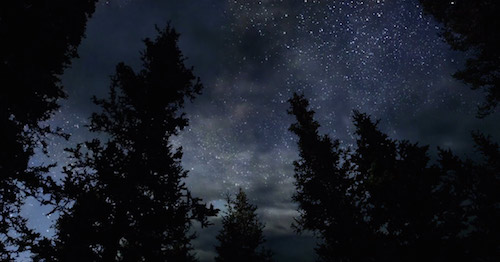 Faith & Science
Faith & Science
 Intelligent Design
Intelligent Design
 Physics, Earth & Space
Physics, Earth & Space
Why Is the Universe Overwhelmingly "Inhospitable to Life"?

A reader asks for a response to the following challenge to the theory of intelligent design:
If the universe was designed for life, it must be said that it is a shockingly inefficient design. There are vast reaches of the universe in which life as we know it is clearly impossible: gravitational forces would be crushing, or radiation levels are too high for complex molecules to exist, or temperatures would make the formation of stable chemical bonds impossible… Fine-tuned for life? It would make more sense to ask why God designed a universe so inhospitable to life.
That’s something that physicist Robert L. Park wrote in his 2009 book Superstition: Belief in the Age of Science (Princeton U. Press), though of course others have said much the same. It’s interesting that materialists generally opt for one of two mutually exclusive lines of argument on this theme. Either they say life can’t be designed because it’s so common: life is surely abundant in the cosmos, being so easy to spark into existence. Or they say life can’t be designed because it’s so rare: the rest of the universe is overwhelmingly sterile.
To those who say the latter, I would want to ask, since the universe isn’t consistent with how you or Robert L. Park would do it if you were in charge — being overall too unfriendly to life — what threshold of friendliness would you require in order to consider the thesis of intelligent design as being at least plausible? Granted that most of the universe seems redundant, irrelevant to life, should then the universe be smaller? By how much? Or the same size but just differently constructed? Must more than 50 percent of the cosmos be hospitable? 90 percent? 99 percent?
What is your threshold and what is your rationale for it? In the absence of a serious answer to that question, the challenge isn’t serious. I would also ask you or Dr. Park if he’s read Michael Denton’s book Nature’s Destiny or watched the new documentary featuring Denton’s work, Privileged Species, showing how physical reality — chemistry, physics — is finely tuned to the utmost degree in countless intricately interlocking respects to make human biology possible.
See also pp. 80-81 in Denton’s book for a fascinating point about why “If there are to be any laws of chemistry and physics, then inevitably there are bound to be a vast number of chemical and physical phenomena of no direct utility to life,” for “redundancy is inherent in all combinatorial mechanisms for generating complexity.”
UPDATE: I see from looking at Bob Park’s personal website that he suffered a health setback not long ago. I wish him a speedy and full recovery, but would put the challenge to anyone else who offers the same critique of ID. Let the critic confront Denton’s evidence and then come back at us.
